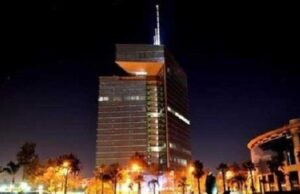
( 4 minutes)
· In a significant development, which will have widespread ramifications, a Cape Town restaurant won a key court battle, which may make insurers pay to hotels which have taken certain type of cover to protect their business interests
· Judge Andre le Grange, however, was not convinced by the argument of the insurer and said that the gloomy predictions of industry collapse are mere speculation
· He further said that even if insurers did receive a flood of claims, that’s no defense for reneging on a contract.
In a significant development, which will have widespread ramifications, a Cape Town restaurant won a key court battle, which may make insurers pay to hotels which have taken certain types of cover to protect their business interests. The case history is that after being unable to do business for months, restaurants, bars, hotels and guesthouses demanded that their insurers honor business interruption claims for the financial harm they suffered during the lockdown.
However, some big insurance companies, like Santam and HCI refused to pay out, claiming that the income losses were due to the government-induced lockdown, and not from the disease itself. Some insurers were willing to settle the claim for the forced closure of a restaurant due to coronavirus cases. But they refused to settle the claims for the general loss of income due to the lockdown
A restaurant in Cape Town, Café Chameleon, brought a case against Guardrisk, a specialist insurance provider owned by MMI Holdings. The hotelier in its prayer said that the restaurant has been forced to close its business in lockdown, and suffered huge financial losses, among other things, due to salary payment to the employees. It says that Guardrisk should settle its claim because it was insured for business interruption coverage if there was an outbreak of a “notifiable disease”. The insurer plea was that losses stemming from the national lockdown didn’t fall under the purview of the agreement. It was the lockdown that caused the damage and not the disease. It also argued that they did have to pay out for general Covid-19 losses there is the potential to destabilise the global and the South African insurance market.
Judge Andre le Grange, however, was not convinced by the argument of the insurer. It said that the gloomy predictions of industry collapse are mere speculation. He further said that even if insurers did receive a flood of claims, that’s no defense for reneging on a contract.
The judge also rejected the argument that it was lockdown, and not Covid-19 which caused the economic harm to the business – a key argument that the insurance industry has been relying on. It is difficult not to accept that there is indeed a clear nexus between the Covid-19 outbreak and the regulatory regime that caused the interruption of the restaurant’s business, he ruled. The suggestion therefore that the regulatory regime was only introduced to “flatten the curve” and had little to do with the Covid-19 outbreak is misplaced, the Court further observed.
Insurance Claims Africa, which is leading hundreds of policyholders in potential class-action lawsuits against the insurance industry, said it was a significant win for the tourism and hospitality sector. However, the petitioner’s lawyers say that it was not the celebration time for the industry since in all probability, the insurance companies would go in appeal against the judgment..











